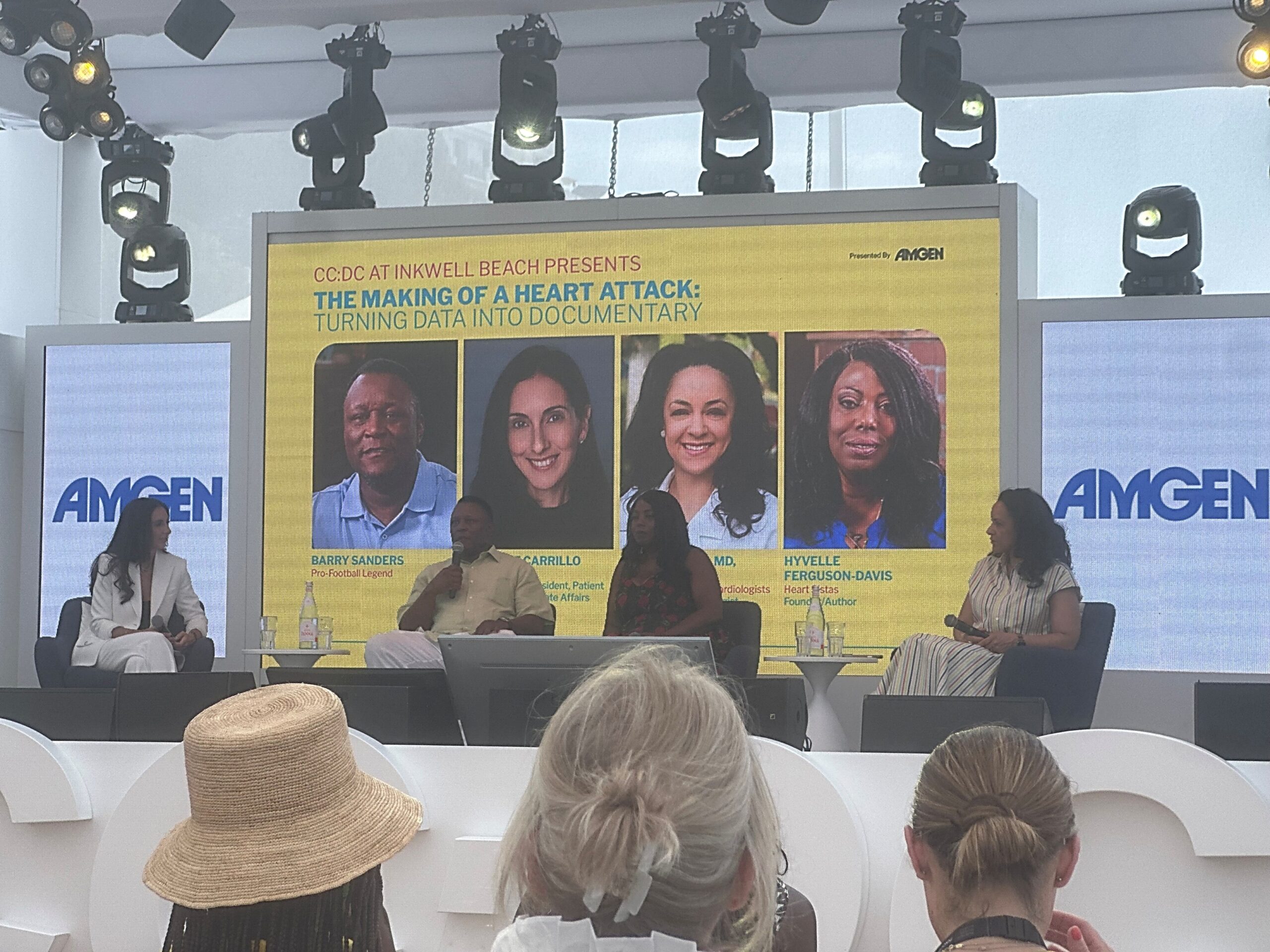
Barry Sanders is a bona fide pro football legend. He played for the Detroit Lions for 10 seasons bringing restoring the team to a national spotlight. During his tenure, Sanders led the league in rushing yards four times and in rushing touchdowns once, establishing himself as one of the most elusive runners in the history of the NFL with his quickness and agility, despite being only 5 ft 8 tall and weighing 203 lbs.
On the field, he faced opponent after opponent, giving it his all. Now, off the field, the football great revealed a personal health issue that is now serving as inspriation for others to win against it as well.
Last June, Sanders publicly announced that he had suffered a heart-related “health scare” during Father’s Day weekend. Sanders, 56, recently shared that he had suffered a heart attack while attending a recruiting visit for his son.
“I couldn’t believe it, honestly,” said Sanders. “I thought it was like heartburn, but it just kind of persisted.”
Now, Sanders has teamed up with pharmaceutical giant, Amgen, on the release of The Making a Heart Attack, a mini-documentary. In it, he narrates and connects with four other people—each with their own riveting heart attack story to tell. Together, they share how their lives and perspectives have changed since their heart attacks.
To promote the documentary, Sanders and Amgen curated at one-of-a-kind panel at the Cannes-Lions Festival of Creativity in Cannes, France to share their story. We were there and were able to speak to the retired pro about this important initiative.
Barry’s Perspective on the Day it Happened
Sanders woke up that morning with what he described as a burning sensation in his chest. After leaving the recruiting visit early, Sanders drove himself to the emergency room later that afternoon. Tests revealed that Sanders’ enzyme levels were “really high and getting higher.” He then underwent a heart catheter procedure, which revealed that he had indeed suffered a heart attack.
“When it happened, I thought I was in pretty good shape,” explained Sanders. “I mean, I still work out some, but I had no idea about the phrase a ‘heart-healthy workout.’ For 30 years of my life, everything centered around me running, and working out and being in shape. I used to think that walking wasn’t working out, but now I see how walking is not only good for you, it’s good for your heart. Things like that and other recommendations from the American Heart Association.”
“Of all things, I don’t know why, that just never entered my mind,” Sanders said. “I’m learning through this process that there aren’t necessarily any warning signs, unless you do what we’re encouraging people to do, which is to go the doctor, get tested for LDL-C levels, or bad cholesterol. That’s the only way to find out if you have high cholesterol. It’s not something you’re going to be able to feel. You don’t have to fit a certain physical profile.”
Sanders opens up in the documentary about his experience as he brings together four other people who experienced a heart attack or stroke to uncover the hidden risks, lasting impacts and what they want others to know.
When speaking about the alarming rates of heart disease in the Black community, Sanders shared this heartfelt message:
“[Knowing your LDL numbers] is vital to our demographic and our community. Whatever conversations you’re having with your doctor or in your community, the LDL conversation needs to be in there.”
“As we get older–and hopefully wiser–health is an essential conversation that we need to have–whenever and wherever.”
Cardiovascular Disease: A Doctor’s Perspective
Another important voice in the documentary and on the panel in Cannes is that of cardiologist, Dr. Sara D. Collins. She shared heart-healthy gems that we can use in our every day lives.
“Don’t worry about your total cholesterol number, your LDL cholesterol or your LDL-C number is the number you need to pay attention to,” states Dr. Collins. “That’s the number that can most directly impact your risk of cardiovascular disease.”
“The most drastic change that we should all take in our journey against cardiovascular disease is our mindset. When we shift our thinking to start looking at everything through the lens of our cardiovascular health.”

The Making of a Heart Attack
The Making of Heart Attack documentary is part of Amgen’s broader and bolder ambition to cut the number of heart attacks and strokes in the U.S. in half by 2030. We sat down with Michelle Carrillo, Associate Vice President of Corporate Affairs at Amgen, who explained why the documentary-style format is used to get the message out.
“During the panel discussion [at Cannes], almost everyone raised their hand when Dr. Collins asked who knew someone with heart disease,” explained Carrillo. “But then, when she asked who knew their LDL number, maybe only 20% of the audience raised their hand. We’ve been in this cardiovascular space at Amgen for almost a decade now and Amgen’s mission is to serve patients and continue to push to get better healthcare for some of the world’s worst illnesses. But when it came to cardiovascular disease, it wasn’t about the innovation that we bring to market, it was the lack of education.”
“And we live in a world where there is so much information, data, and noise. And I think we want to cut through that noise. So this idea of choosing a format to tell a story to explain what it means, of what’s happening inside of you that leads to a heart attack and stroke, and bring that visual to life through people who’ve actually experienced it, is a very powerful platform for us.”
“This is not just a documentary. Of course, we want more people to share it and more people to view it, but ultimately, we want more people to act.”
To learn more about LDL-C, especially if you have cardiovascular disease, including how to get a free cholesterol test, visit AttackHeartDisease.com/Test. Be sure to talk to your doctor about your results.









